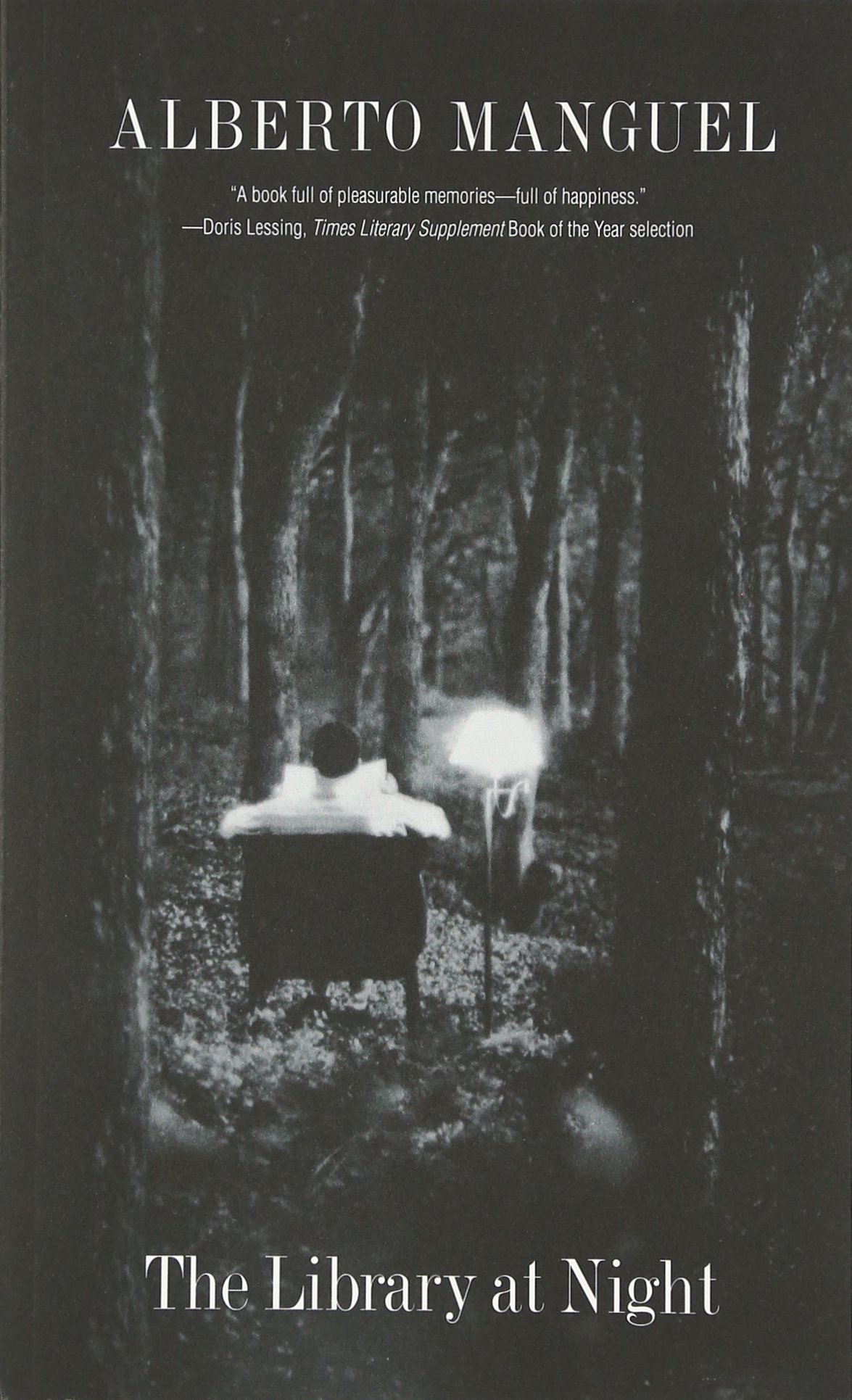As any other bookworm worth its salt, I digested a generous amount of books on books and the history of libraries. Alberto Manguel’s The Library at Night was last, and that is a pity. It probably arrived just a little too late on my shelves. I wish I found it at the beginning of my reading journey when my enthusiasm for libraries and their contents was pristine.
Manguel’s writing is mesmerizing and capable. The lover of libraries and their books (in that order because this text is more about libraries than the books they contain) will undoubtedly fall into the rabbit hole and devour this book. Check this out:
But at night, when the library lamps are lit, the outside world disappears and nothing but this space of books remains in existence. To someone standing outside, in the garden, the library at night appears like a vast vessel of some sort, like that strange Chinese villa that, in 1888, the capricious Empress Cixi caused to be built in the shape of a ship marooned in a garden lake of her Summer Palace. In the dark, with the windows lit and the rows of books glittering, the library is a closed space, a universe of self-serving rules that pretend to replace or translate those of the shapeless universe beyond.
 This book is a treasure chest filled with remarkable, carefully crafted gems.
With books like this one, I feel bad for not taking notes as I read. Each
chapter is on a topic: the library as power, as order, shape, shadow, mind,
workshop, and the list goes on. Some are more exciting than others, but overall
the selection is rich, varied, and original enough to keep the reader
entertained all along. The author’s library, assembled during his whole life,
spent a “professional reader” (not kidding, as a teenager, he was reading books
for a now-blind Jorge Luis Borges) and collecting books all-along while moving
across three continents, is the recurring theme. One way or another, you’ll
find it mentioned in every chapter, and for good reasons, because it must have
been formidable1.
This book is a treasure chest filled with remarkable, carefully crafted gems.
With books like this one, I feel bad for not taking notes as I read. Each
chapter is on a topic: the library as power, as order, shape, shadow, mind,
workshop, and the list goes on. Some are more exciting than others, but overall
the selection is rich, varied, and original enough to keep the reader
entertained all along. The author’s library, assembled during his whole life,
spent a “professional reader” (not kidding, as a teenager, he was reading books
for a now-blind Jorge Luis Borges) and collecting books all-along while moving
across three continents, is the recurring theme. One way or another, you’ll
find it mentioned in every chapter, and for good reasons, because it must have
been formidable1.
The text mentions a remarkable number of ancient and modern authors with their works. The author shows his culture, but not in a pedantic or annoying way. One chapter is about the advent of digital libraries. I share his preference for the printed form. He goes a great length into explaining why old school is better, and I tend to agree with most of his reasoning. I think, however, that he is too dismissive of the digital form. It brings so many previously unthinkable features. He acknowledges some. It has always been my dream to own both forms of all my books: printed and digital. If there were one service that allowed me to buy both at once, at the same price, I would be all-in.
Last but not least, my favorite quote from the book:
Immensely generous, my books make no demands on me but offer all kind of illuminations.
Spoiler alert. I researched into the matter. It turns out that Manguel’s library counted 40,000 titles. In 2020, he donated them all to Lisbon’s Centre for Research into the History of Reading. ↩︎